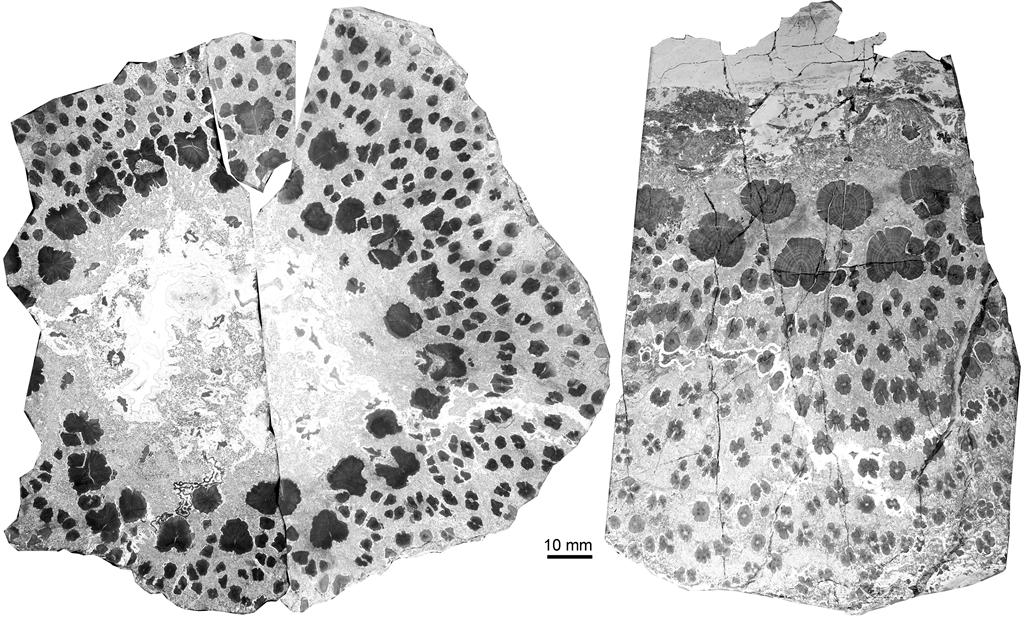
The transverse plane of a trunk from the Upper Devonian of Xinjiang
The evolution of trees and forests in the Middle to Late Devonian Epoch, 393–359 million years ago, substantially transformed the terrestrial environment and atmosphere. The oldest fossil trees belong to the class Cladoxylopsida. In general, their water-conducting system was a ring of hundreds of individual strands of xylem (water-conducting cells) that were interconnected in many places. However, how these structures grew and how the trees became tall enough to make a forest are still unclear.
Researchers from NIGPAS, Cardiff University (UK) and the State University of New York at Binghamton (USA) reported some exceptionally well-preserved fossil tree trunks approximately 374 million years old from Xinjiang, Northwest China. These fossils suggest that earth’s earliest forest trees were able to achieve great size by a unique method that involved building a hollow cylindrical skeleton of interconnected, growing, woody strands that both tore itself apart and collapsed under its own weight in a controlled manner as the tree’s diameter expanded. The finding was published in Proceedings of the National Academy of Sciences (PNAS) on Oct. 23, 2017.
Science:http://www.sciencemag.org/news/2017/10/world-s-first-trees-grew-splitting-their-guts
Nature:https://www.nature.com/articles/d41586-017-04995-w
The Scientist:http://www.the-scientist.com/?articles.view/articleNo/50711/title/The-Weird-Growth-Strategy-of-Earth-s-First-Trees/
EurekAlert!:https://www.eurekalert.org/pub_releases/2017-10/caos-rpe102317.php
Independent:http://www.independent.co.uk/news/science/tree-structure-mystery-china-scientists-baffled-a8016276.html
Download:
